Airdrop Verification Tool
Airdrop Legitimacy Check
This tool helps you verify if a crypto airdrop is legitimate. Based on the article content, follow these key indicators to spot scams.
How It Works
This tool uses key indicators from the article to help you spot fake airdrops:
- 1 Check if platform is listed on CoinMarketCap with verification
- 2 Verify project on CoinGecko or DappRadar
- 3 Confirm whitepaper and team information
- 4 Never share private keys
If you’ve heard about an E2P Token airdrop tied to Coinstore, Greenex, and CoinMarketCap, you’re not alone. Many crypto users are searching for details - but the truth is, there’s no official confirmation from any of these platforms about this specific airdrop. No press release. No announcement on CoinMarketCap’s airdrop page. No verified social posts from Greenex or Coinstore. And yet, rumors are spreading. So what’s really going on? And more importantly - should you be chasing it?
What Is E2P Token?
E2P Token doesn’t appear in any major crypto databases like CoinGecko, CoinMarketCap, or DeFiLlama. There’s no whitepaper, no GitHub repository, no team profile, and no verified contract address on Etherscan or BSCScan. That’s a red flag. Legitimate token projects don’t launch without public documentation. Even early-stage projects usually have at least a litepaper or a Telegram channel with active moderators.
Some users claim E2P is a new utility token meant for decentralized trading or yield farming. But without a website, tokenomics, or roadmap, these claims are just guesses. If E2P were real and backed by Coinstore and Greenex - two platforms with real user bases - you’d see clear, detailed instructions on how to claim the tokens. Instead, all you find are screenshots of fake claim pages and Telegram groups asking for wallet addresses to "send your E2P rewards."
How Coinstore Airdrops Actually Work
Coinstore is a real exchange. It’s registered in the British Virgin Islands and lists over 1,100 tokens. It runs a Launchpad program that’s helped launch projects like $MILK and $KAITO. Those launches had clear timelines, whitelisting forms, and KYC requirements. Users who participated got real tokens - not promises.
When Coinstore does an airdrop, it’s announced on its official blog, Twitter, and in-app notifications. The rules are simple: hold a specific coin for 7 days, refer three friends, or complete a trading challenge. Rewards are automatically sent to your Coinstore wallet. No one asks you to send crypto to claim airdrop tokens. Ever.
Greenex: The Missing Link
Greenex is even harder to verify. There’s no official website. No LinkedIn profiles for its team. No registered company filings in any jurisdiction. Some forums mention it as a crypto exchange based in Southeast Asia, but there’s no trace of it on regulatory databases like the FCA, ASIC, or CySEC. If Greenex were a real partner in this airdrop, you’d see its logo on CoinMarketCap’s partner page or on Coinstore’s official announcements.
Scammers often invent fake names like "Greenex" to make their schemes sound more credible. They pair them with real platforms like Coinstore or CoinMarketCap to trick users into thinking the airdrop is legitimate. Don’t fall for it. Real partnerships are public. They’re announced. They’re documented.
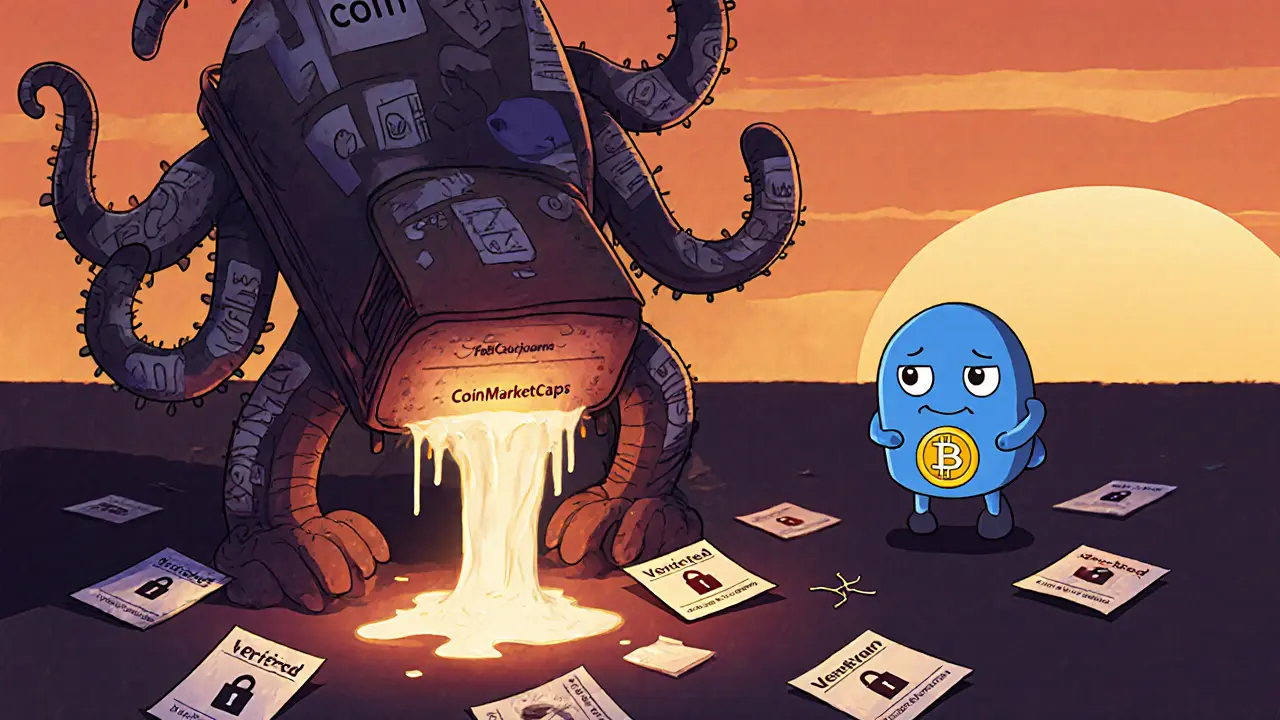
CoinMarketCap’s Airdrop System - What’s Actually Happening
CoinMarketCap doesn’t run its own airdrops. It hosts them for third-party projects. If a project wants to run an airdrop through CoinMarketCap, it pays for promotion and follows strict guidelines. The project must have a live website, verified social media, and a token contract that’s been audited. CoinMarketCap then lists the airdrop with clear instructions: "Follow us on Twitter," "Join our Telegram," "Add token to watchlist."
Right now, CoinMarketCap’s airdrop page shows zero current or upcoming airdrops. The "Previous airdrops" section is loading data - which means it’s either broken or empty. If E2P were a real airdrop, it would be listed there. It’s not. That’s not a glitch. That’s a signal.
Why This Airdrop Is Almost Certainly a Scam
Here’s how this scam works:
- You see a post on Twitter or Telegram: "E2P Token airdrop! 500 tokens free for Coinstore and Greenex users!"
- You click a link that takes you to a fake website that looks like Coinstore’s login page.
- You enter your email and password - and suddenly, your Coinstore account is hacked.
- Or you’re asked to connect your wallet to a smart contract. The contract drains your ETH, USDT, or other tokens.
- After you send funds, the site disappears. No tokens. No reply. Just silence.
These scams target people who want free crypto. They prey on excitement. They use real brand names to look trustworthy. But if it sounds too good to be true - it is.
How to Spot a Fake Airdrop
Here’s how to protect yourself:
- Never give away your private key or seed phrase. No legitimate project will ever ask for this.
- Don’t connect your wallet to unknown sites. Even if it says "Claim E2P," it could be draining your balance.
- Check official channels. Go directly to Coinstore.com, CoinMarketCap.com, or Greenex’s supposed site - not links from Twitter or Telegram.
- Look for verification badges. Official CoinMarketCap airdrops have a "Verified" tag. E2P has none.
- Search for the project on CoinGecko or DappRadar. If it’s not there, it’s likely fake.
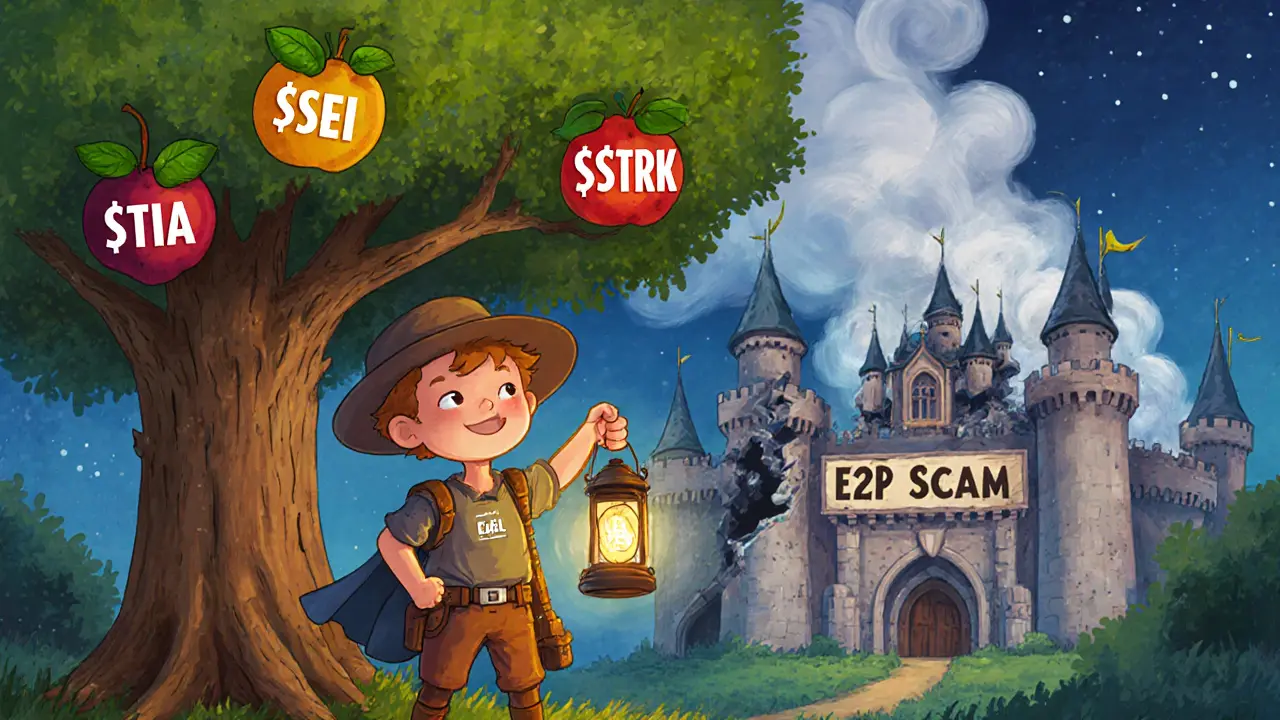
What to Do If You Already Participated
If you’ve already entered your wallet address or logged into a fake site:
- Immediately disconnect any connected wallets on revoke.cash (or similar tools).
- Check your wallet history for any unusual transactions.
- If funds were stolen, report it to the platform where you lost them (e.g., Coinstore support if your account was compromised).
- Change passwords for all crypto-related accounts - email, exchange, wallet.
- Warn others. Post on Reddit or Twitter (tagging @Coinstore and @CoinMarketCap) to alert the community.
Legit Airdrops to Watch Instead
If you want real airdrops, stick to verified sources:
- CoinMarketCap’s official airdrop page - only list projects with "Verified" status.
- Coinstore Launchpad - check their blog for upcoming token sales and airdrops.
- Official project websites - if a project has a real team, they’ll have a clear airdrop guide with deadlines and rules.
- DeFiLlama and TokenUnlocks - track upcoming token distributions from reputable protocols.
Projects like $SEI, $TIA, and $STRK have all run successful airdrops with full transparency. You don’t need to chase ghost tokens like E2P to earn rewards.
Final Verdict
There is no E2P Token airdrop from Coinstore, Greenex, and CoinMarketCap. It doesn’t exist. It’s a scam.
Don’t click links. Don’t connect wallets. Don’t send any crypto. Don’t share your email or password. The only thing you’ll get from this "airdrop" is a drained wallet and a wasted afternoon.
If you’re looking for free crypto, stick to real platforms. Learn how to spot scams. Protect your assets. The crypto world is full of real opportunities - you don’t need to chase shadows to find them.
Is the E2P Token airdrop real?
No, the E2P Token airdrop linked to Coinstore, Greenex, and CoinMarketCap is not real. There is no official announcement from any of these platforms. CoinMarketCap shows no active airdrops, Greenex has no verifiable presence online, and E2P Token has no whitepaper, contract, or team. This is a known scam targeting crypto users.
Can I get E2P tokens for free?
No, you cannot get E2P tokens for free - because they don’t exist. Any site asking you to connect your wallet or enter your private key to claim E2P is trying to steal your funds. Legitimate airdrops never ask for your private key or require you to send crypto to receive tokens.
Why do people believe in fake airdrops like E2P?
People believe in fake airdrops because they use real brand names like Coinstore and CoinMarketCap to appear trustworthy. Scammers create fake websites that look identical to the real ones. They also use urgency - "Only 24 hours left!" - to pressure users into acting without checking. The desire for free crypto makes people lower their guard.
How do I verify if an airdrop is real?
Check the official website of the platform hosting the airdrop. Look for a "Verified" badge on CoinMarketCap. Search for the project on CoinGecko or DappRadar. Read the whitepaper. Look for team members with LinkedIn profiles. If you can’t find any of these, it’s fake. Never trust a link sent via Telegram or Twitter DM.
What should I do if I already sent crypto to claim E2P?
Immediately disconnect your wallet from any suspicious sites using revoke.cash. Check your transaction history for any unauthorized transfers. Change passwords for all your crypto accounts. Report the scam to Coinstore support and warn others on social media. Unfortunately, once crypto is sent to a scam address, it’s almost always unrecoverable.
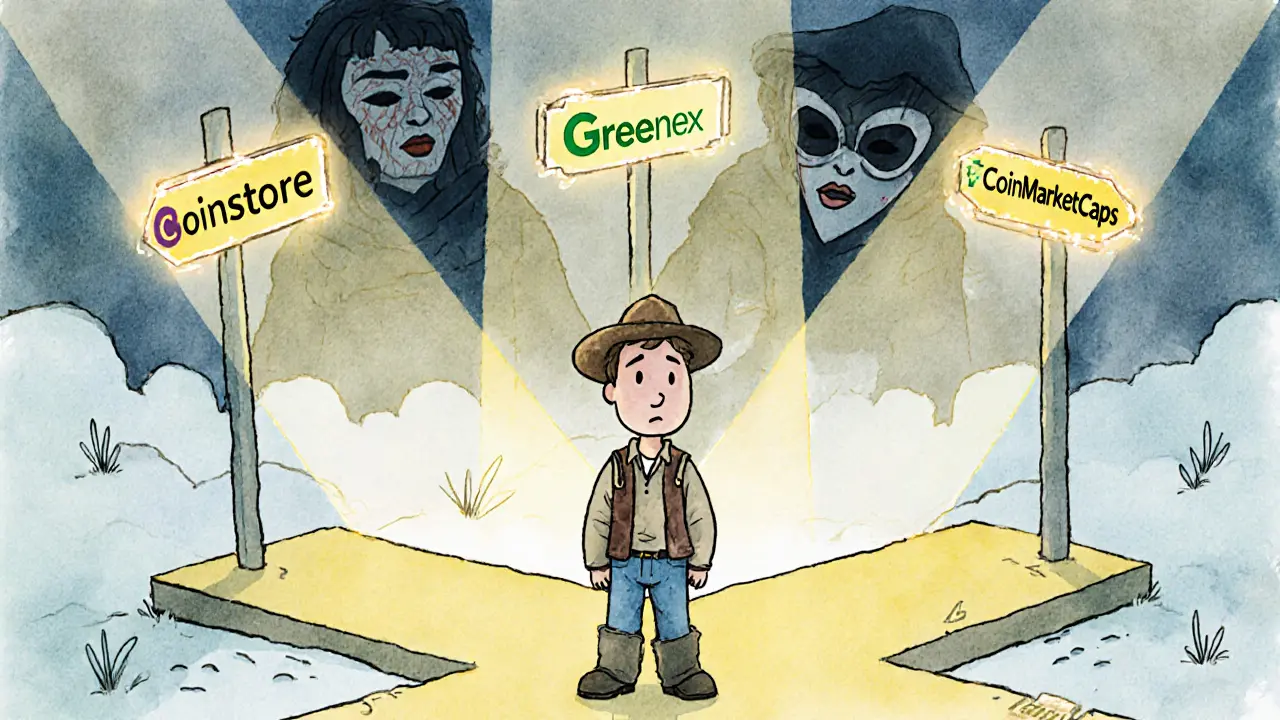


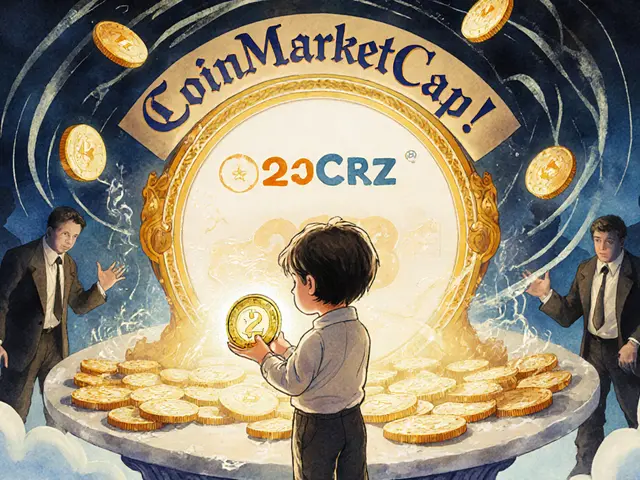
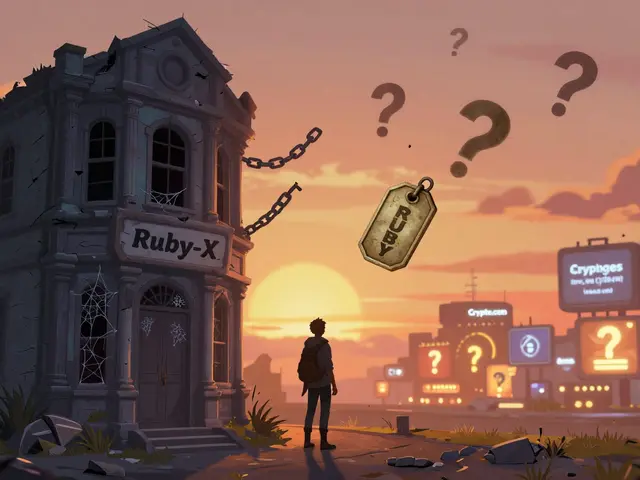

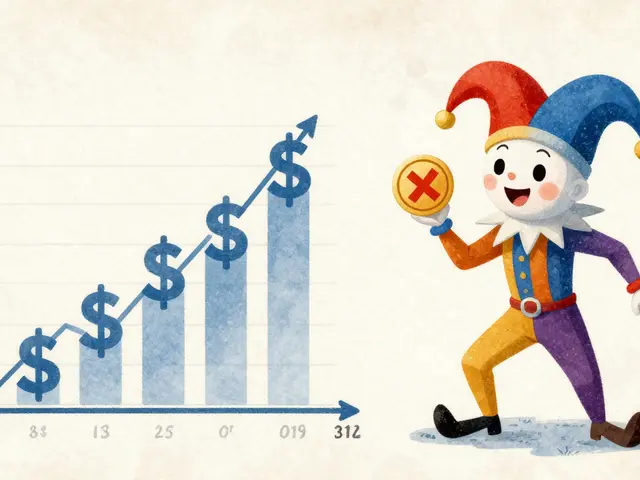


Sunita Garasiya
November 19, 2025 AT 14:13Norm Waldon
November 20, 2025 AT 02:34Mike Stadelmayer
November 21, 2025 AT 05:53Lynn S
November 22, 2025 AT 13:07sky 168
November 22, 2025 AT 13:12Devon Bishop
November 24, 2025 AT 06:39Peter Mendola
November 25, 2025 AT 15:58neil stevenson
November 26, 2025 AT 17:38Khalil Nooh
November 27, 2025 AT 08:37Chris G
November 29, 2025 AT 04:55Marilyn Manriquez
December 1, 2025 AT 03:00taliyah trice
December 2, 2025 AT 06:03Charan Kumar
December 3, 2025 AT 13:31Terry Watson
December 4, 2025 AT 07:35Samantha bambi
December 4, 2025 AT 16:17sammy su
December 4, 2025 AT 17:35Jack Richter
December 5, 2025 AT 21:21Anthony Demarco
December 6, 2025 AT 14:05